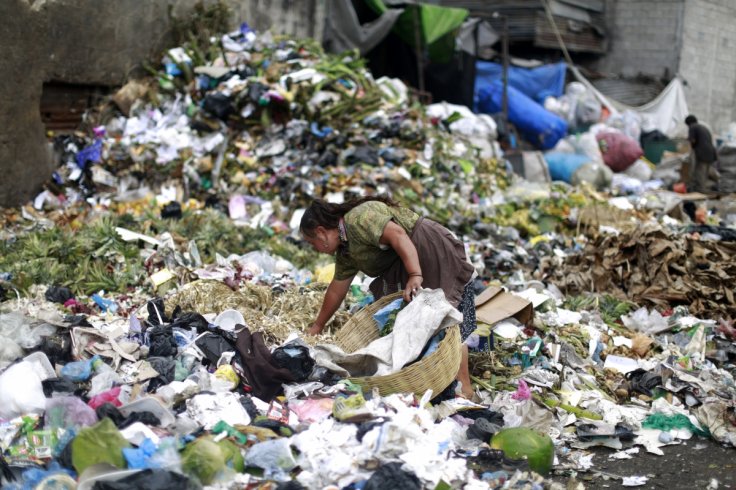As countries across the globe move towards rapid economic growth, the consequent rise in greenhouse gas emissions is increasingly affecting food systems on a large scale, with countries across the global south – where the effects of climate change are more evident – suffering from high concentrations of poverty and hunger.
According to the Global Hunger Index report unveiled by Irish aid agency Concern Worldwide and German organisation Welt Hunger Hilfe, climate change is impeding progress in hunger reduction across the globe, particularly in South Asia and Africa South of the Sahara regions, where agriculture is highly dependent on rainfall and susceptible to even small changes in temperature.

The 2019 report based on four GHI indicators -- undernourishment, child stunting, child wasting, and child mortality – suggested that while the world had made gradual progress in reducing hunger on a global scale, the progress was uneven as hunger still persisted in many countries and in some instances the progress was even being reversed.
"Large populations (up to 80 percent of rural households in some countries), which depend on agriculture for livelihoods, are most at risk of climate change-induced hunger and food insecurity," the report suggested.
The report said about 822 million people across the globe remained undernourished, 149 million children were stunted because of undernutrition, and more than two billion people suffered from deficiencies of one or more micronutrients, and attributed it to persistent instability in conflict-ridden regions, economic slowdowns in more peaceful regions, and adverse climate events.
While the global development community and individual countries have made concerted efforts to address undernutrition, suggested the report, the current action and spending are still insufficient to reach the global nutrition targets. It estimated an additional $70 billion beyond current budget expectations over 10 years was needed to achieve the global targets for child stunting, anemia, exclusive breastfeeding, and the scaling up of treatment for child wasting.
About 45 countries are moving slower than needed to achieve the goal of "Zero Hunger", the second Sustainable Development Goal, the report said, adding those countries will fail even to reach low hunger as defined by the GHI Severity Scale by 2030.
The report said hunger and undernutrition situations in nine countries -- Burundi, Comoros, Democratic Republic of Congo, Eritrea, Libya, Papua New Guinea, Somalia, South Sudan, and Syria – could not be calculated because of lack of sufficient data, and worried these countries were cause for significant concern and the hunger levels in some instances might be higher than in the countries for which GHI scores were calculated.
Central African Republic, Yemen, and Chad at 53.6, 45.9, and 44.2, respectively, are among the worst-performing countries, according to the report, due to conflict, civil war, insecurity and disrupted livelihoods, access to markets and trade.
The report explained food production was likely to fall in response to higher temperatures, water scarcity, greater CO2 concentrations in the atmosphere, and extreme events such as heatwaves, droughts, and floods, while rising sea-level posed a particular risk to food security on small islands, in low-lying coastal areas, and in river deltas.
The report suggested food crops such as wheat and rice were highly sensitive to minor changes in temperature and water salinity, while data were lacking on how climate change affected other nutritionally important crops such as millet, lentils, fruits, and vegetables.
Recent studies, however, suggest that climate change worsen the nutritional value of the food by reducing the protein, zinc, and iron content of crops.
The GHI report said good governance, participatory planning, and downward accountability were essential to negotiate and define fair and sustainable measures and highlighted the need for enhanced collaboration between global and national civil society to address the challenge of hunger across the globe.








